Nội Dung Chính
Grammar
1. Put the verbs in brackets into the correct form.
1. If we (recycle) __________ more, we (help) __________ the Earth.
2. Factories (not dump) __________ waste into rivers if the government (fine) __________ them heavily.
3. If people (travel) to work by bus, there (be) __________ fewer car fumes.
4. We (save) __________ thousands of trees if we (not waste) __________ paper.
5. If we (use) __________ water carefully, more people (have) __________ fresh water.
2. Combine each pair of sentences to make a conditional sentence type 1.
1. Students are more aware of protecting the environment. Teachers teach environmental issues at school.
→ _______________________________________________________________
2. Light pollution happens. Animals change their behaviour patterns.
→ _______________________________________________________________
3. The levels of radioactive pollution decrease. We switch from nuclear power to renewable energy sources.
→ _______________________________________________________________
4. The water temperature increases. Some aquatic creatures are unable to reproduce.
→ _______________________________________________________________
5. People get more diseases. The water is contaminated.
→ _______________________________________________________________
Conditional sentences type 2
The conditional sentence type 2 describes a thing which is not true or is unlikely to happen in the present or future.
If + subject + V (past simple), subject + would/could/might + V + bare (infinitive)
If-clause main clause
Example: If it wasn't noisy in here, I could hear you clearly. (But it’s very noisy in here.)
The conditional sentences type 2 can be used to give advice.
Example: If I were you, I would see the doctor immediately.
Note: We can use both was and were with I/he/she/it in the if-clause.
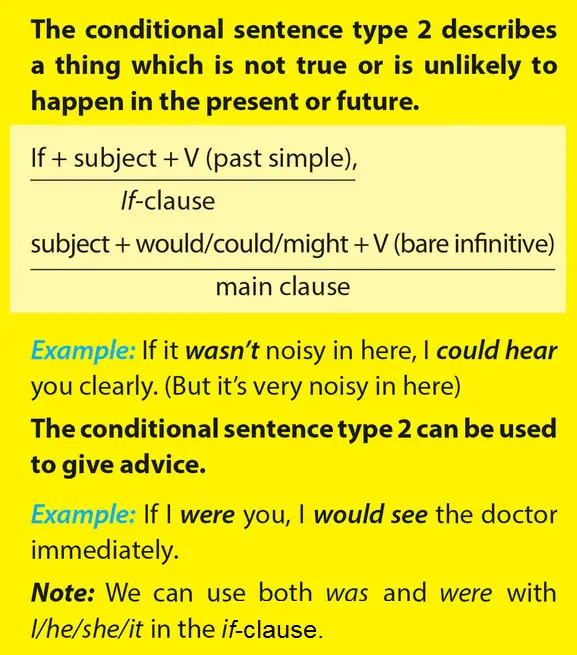
3. Match an if-clause (1-5) with a suitable main clause (a-e).
| A | B |
| 1. If I were you, | a. what would happen? |
| 2. If Lan wasn't ill | b. I'd look for a new place to live. |
| 3. If there were fewer cars on the road, | c. she would join our tree planting activity. |
| 4. If people really cared about the environment, | d. there would be less pollution. |
| 5. If there was no fresh water in the world, | e. they wouldn't dump waste into the lake. |
4. Put the verbs in brackets into the correct form.
1. If you (be) __________ the president, what you (do) __________ to help the environment?
2. They get sick so often. If they (exercise) __________ more, they (be) __________ healthier.
3. If l (have) __________ one million US dollars, I (build) __________ more parks in our city.
4. Ngoc's mother is unhappy. If Ngoc (tidy) __________ her room every day, her mother (not be) so upset.
5. There isn't a garden at our house. If there (be) __________ we (grow) __________ vegetables.
5. Write a conditional sentence type 2 for each situation, as in the example.
1. People throw rubbish in the street. The street doesn't look attractive.
→ If people didn't throw rubbish in the street, it would look attractive.
2. There are so many billboards in our city. People cannot enjoy the view.
→ _______________________________________________________________
3. There is so much light in the city at night. We cannot see the stars clearly.
→ _______________________________________________________________
4. We turn on the heater all the time. We have to pay three million dong for electricity a month.
→ _______________________________________________________________
5. The karaoke bar makes so much noise almost every night. The residents complain to its owner.
→ _______________________________________________________________
6. She has a headache after work every day. She works in a noisy office.
→ _______________________________________________________________
6. CHAIN GAME
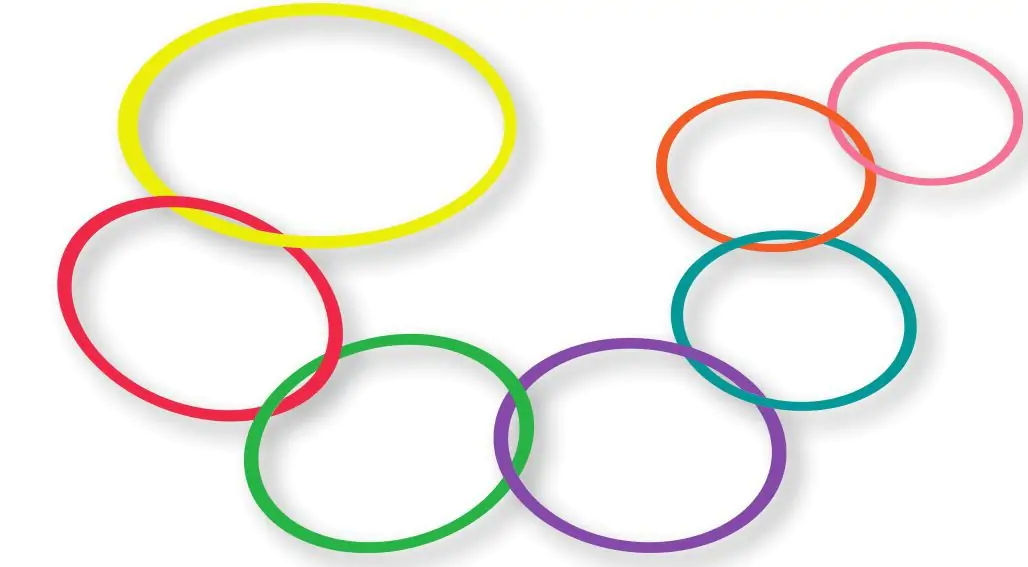
Work in groups. Student A begins with a conditional sentence type 1 or type 2. Student B uses the end of student A's sentence to begin his/her own sentence. Student C does the same. Continue the game until the teacher tells you to stop.
Which group has the most sentences?
Example:
A: If each person plants a tree, there will be a lot of trees.
B: If there are a lot of trees, the air will be cleaner.
C: If the air is cleaner, fewer people will be ill.


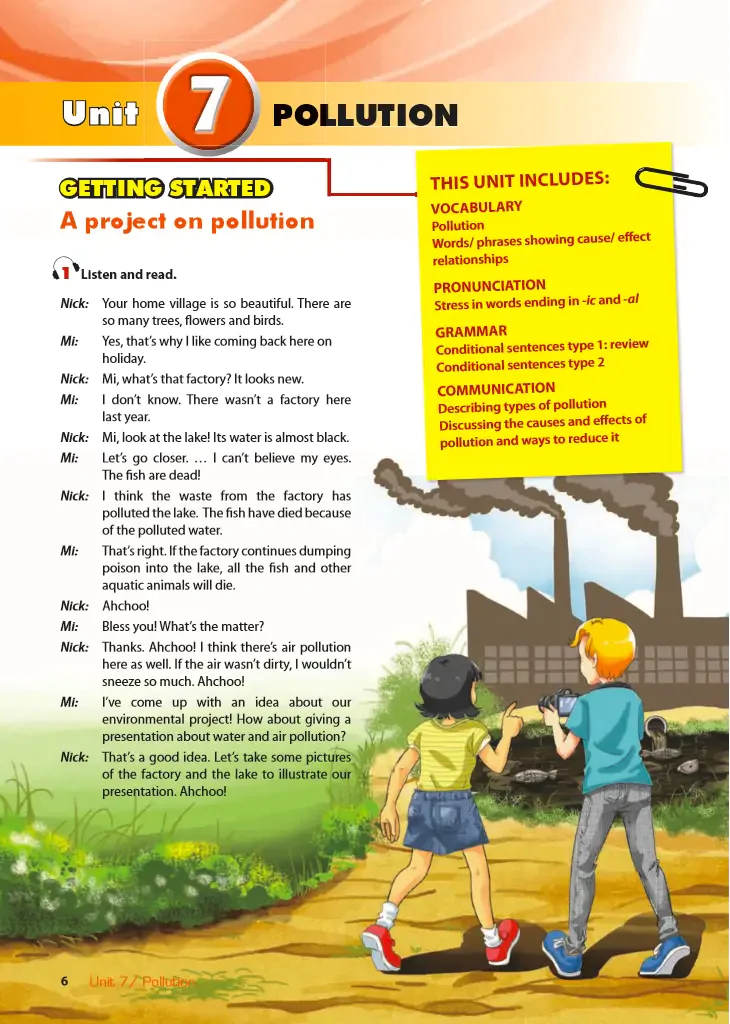
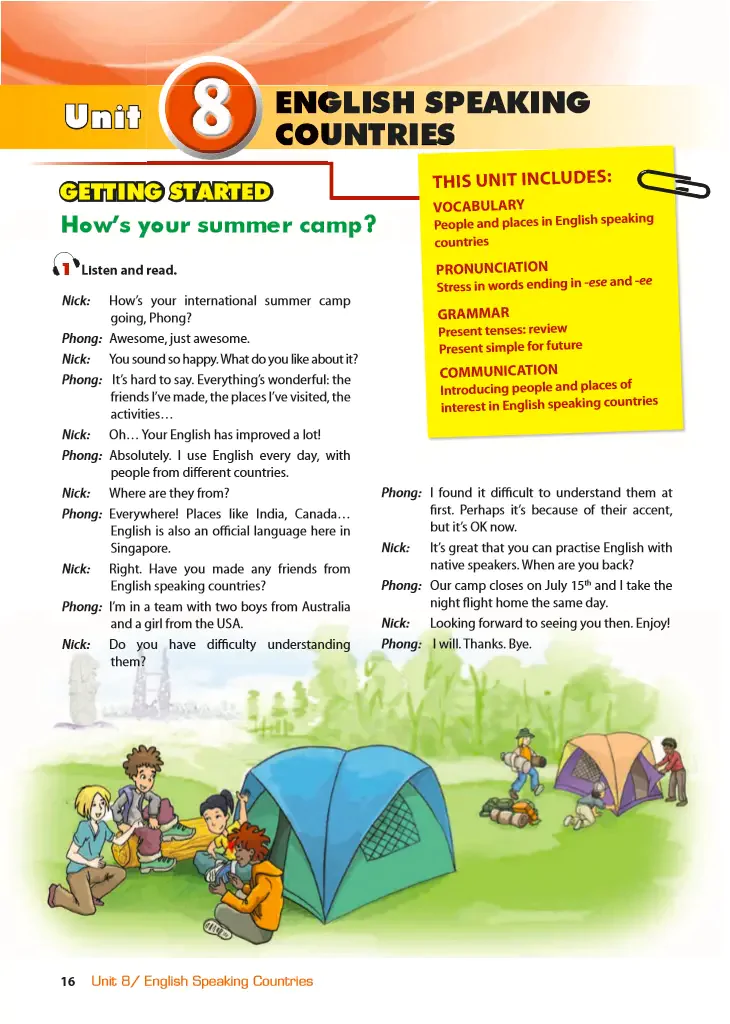
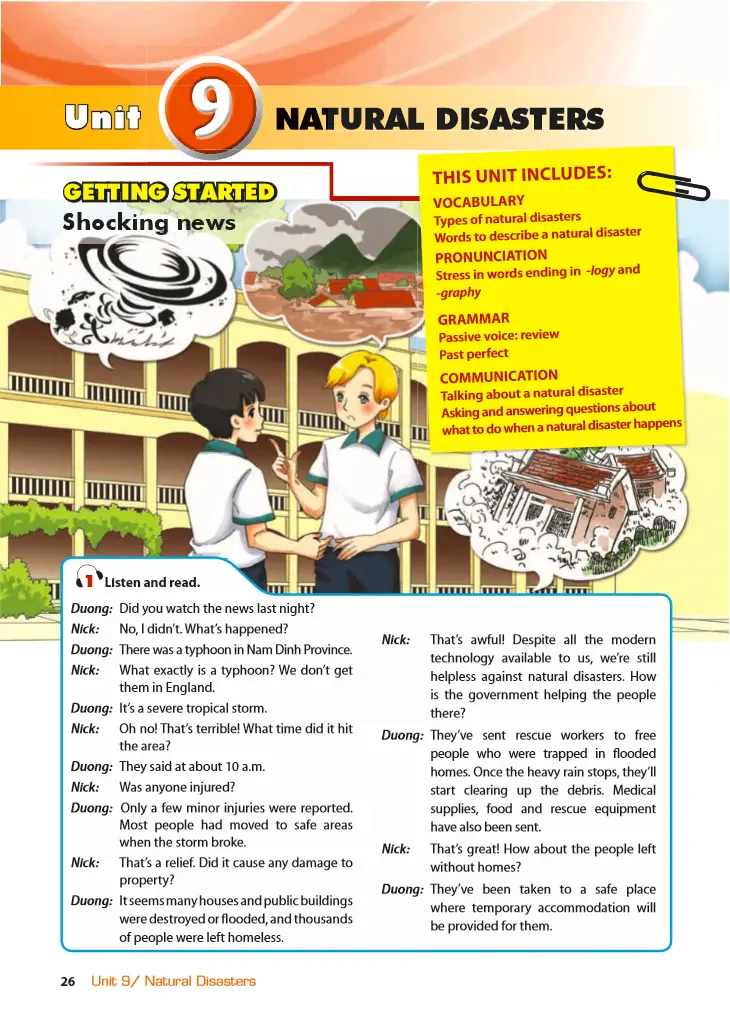
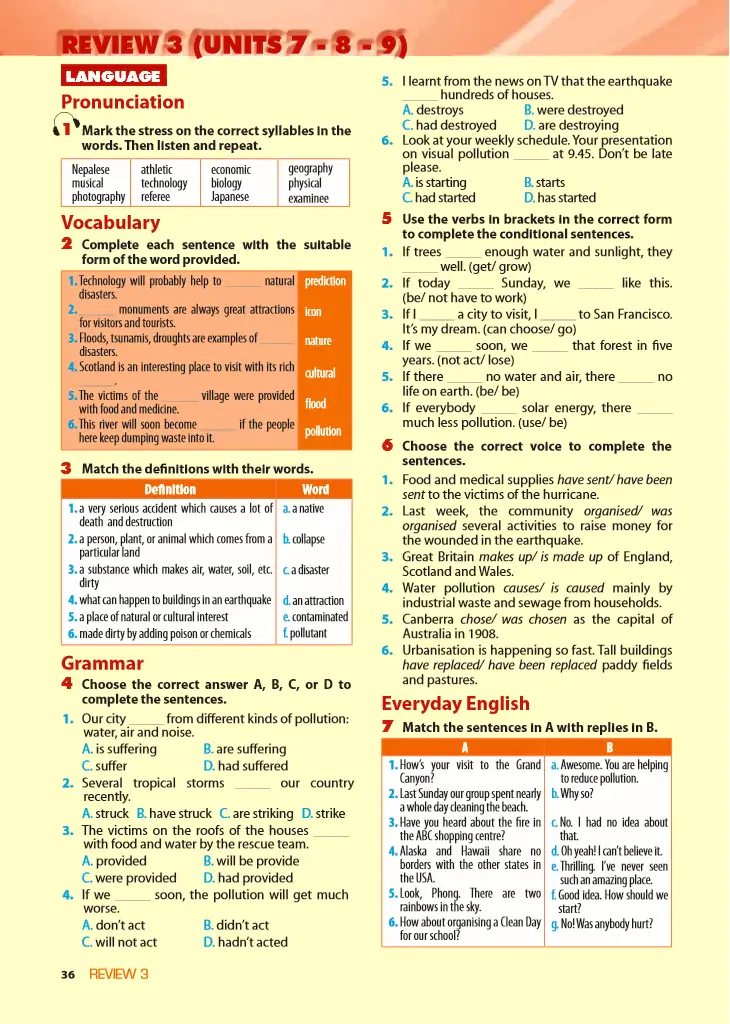
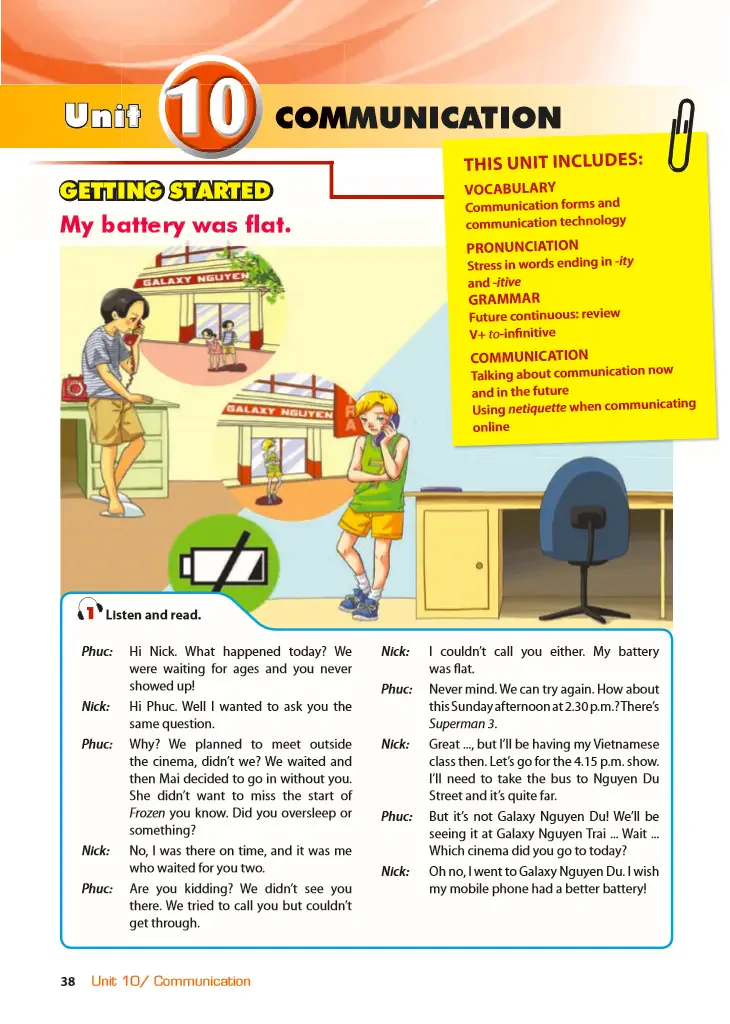
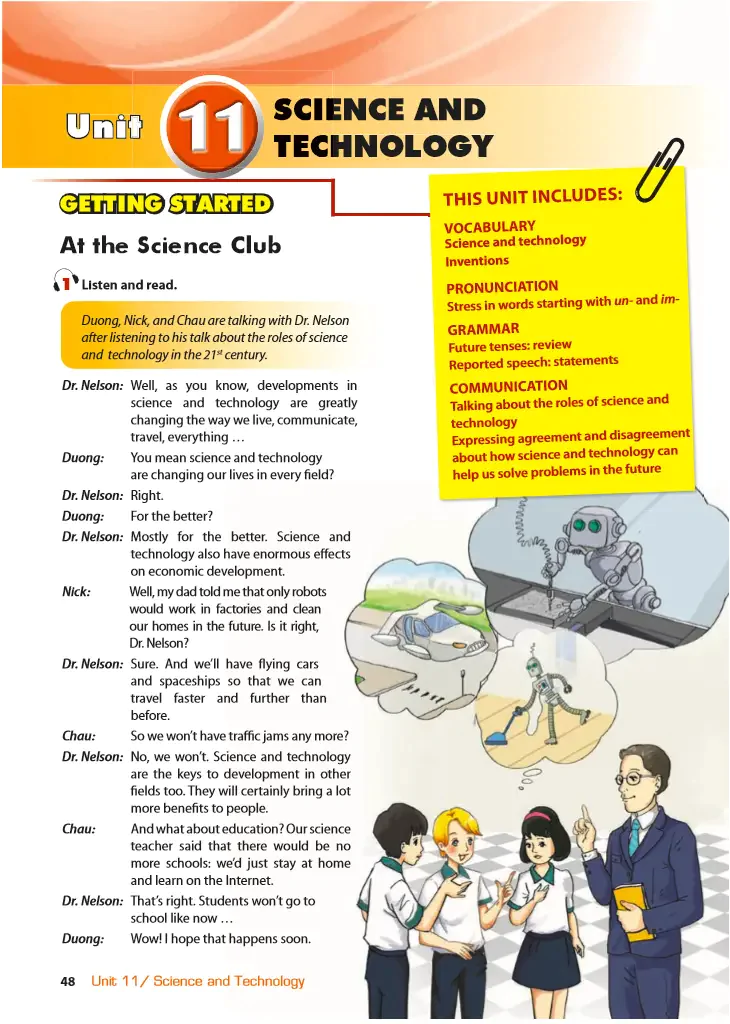
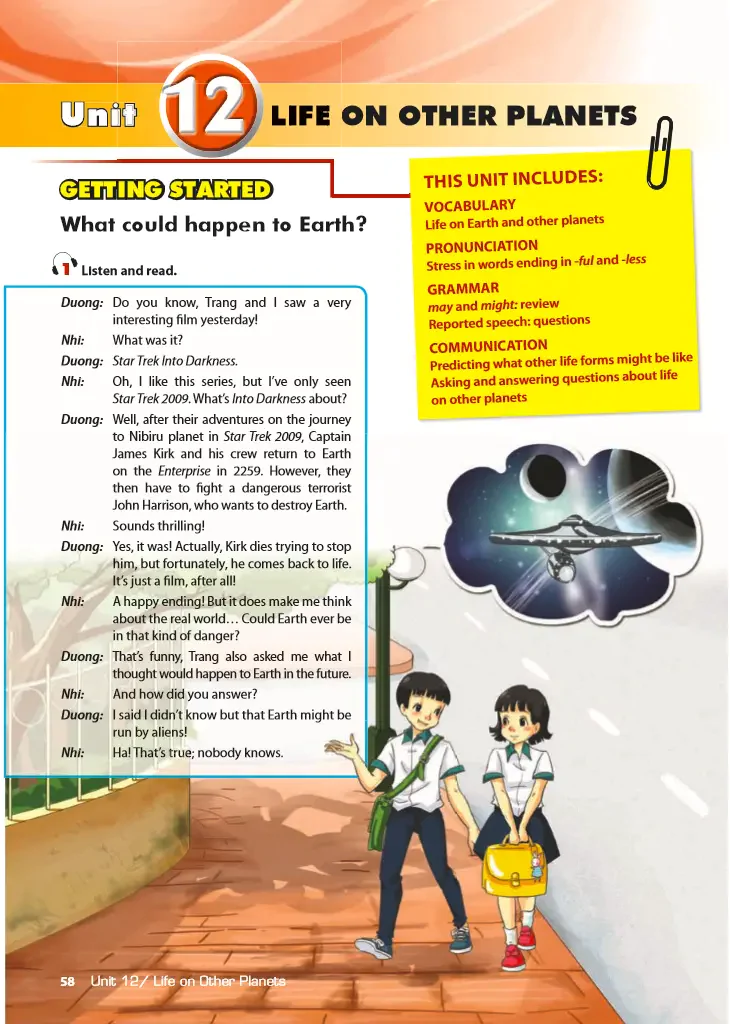
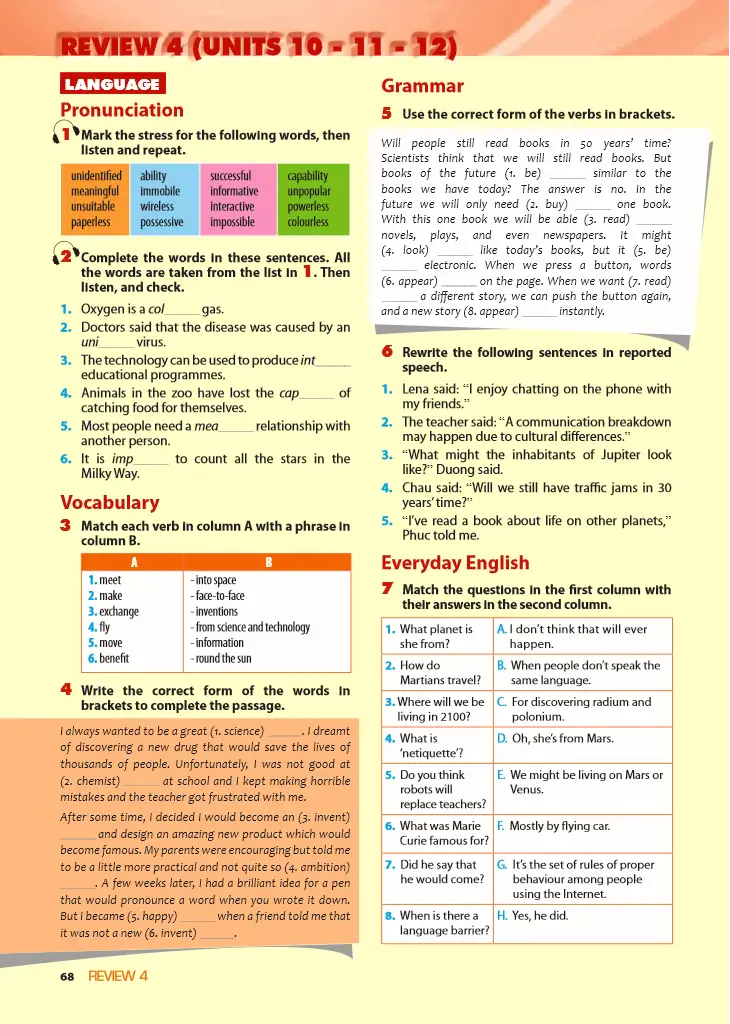

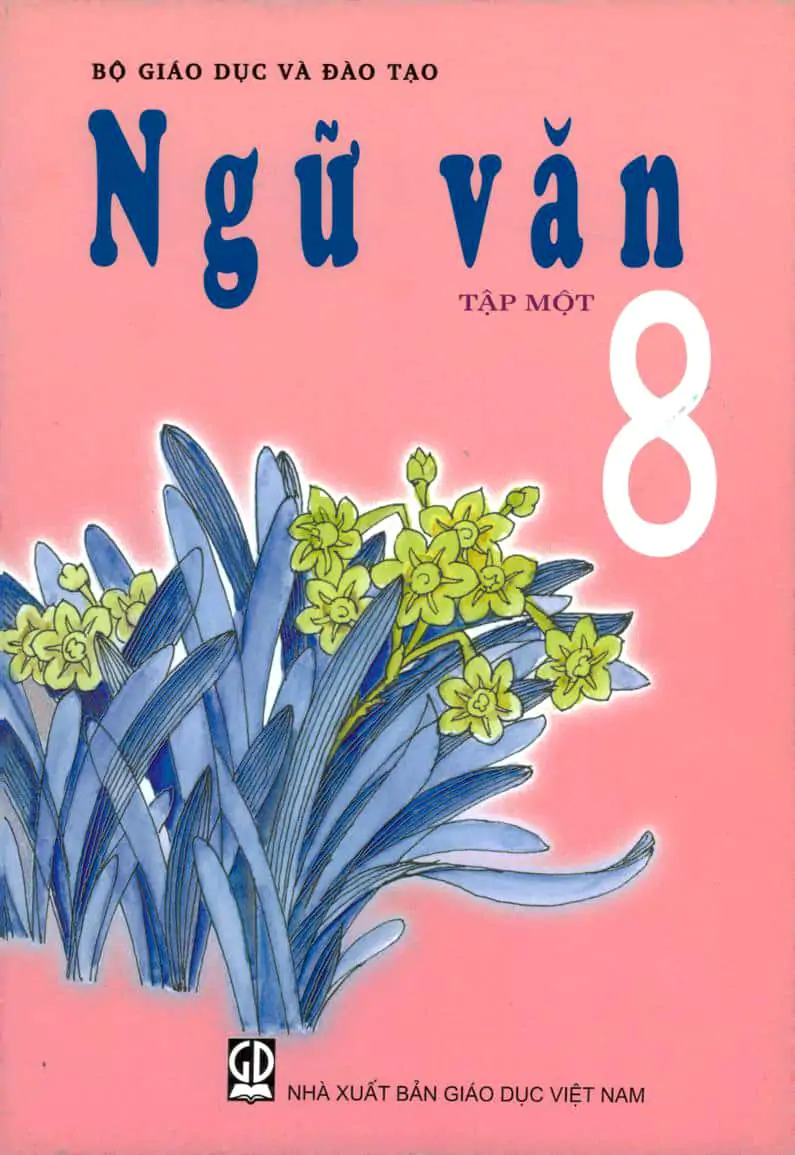
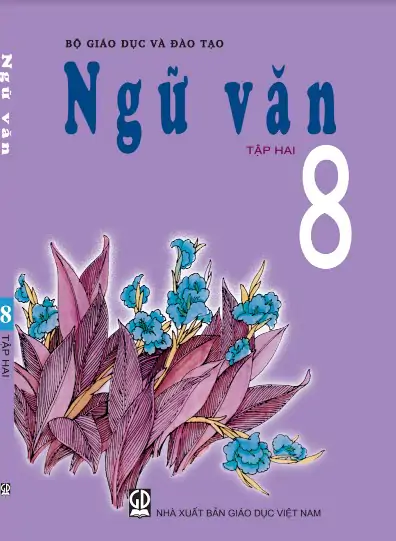
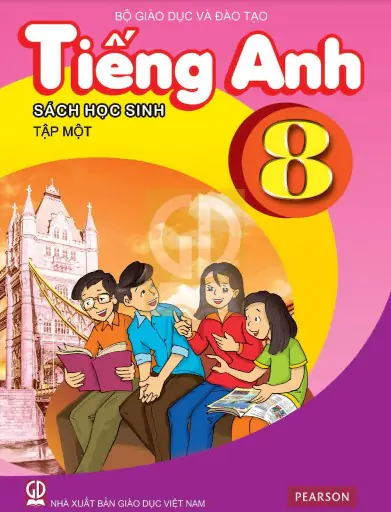
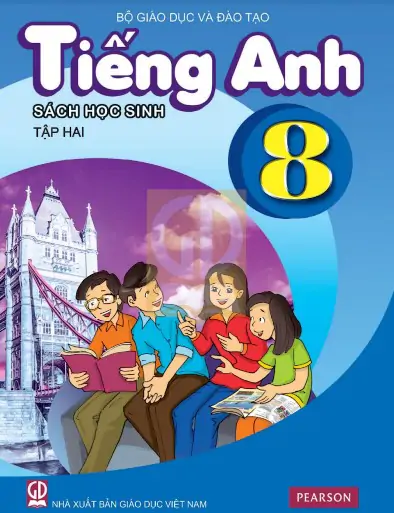
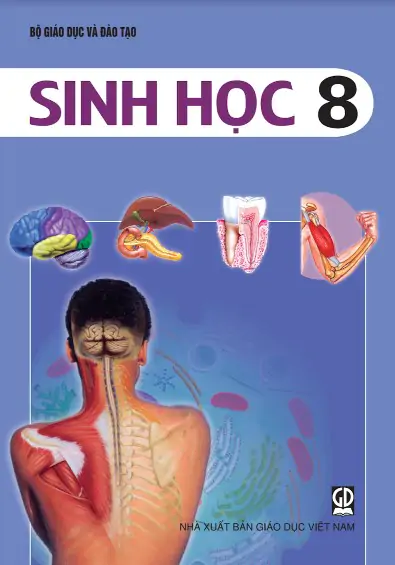
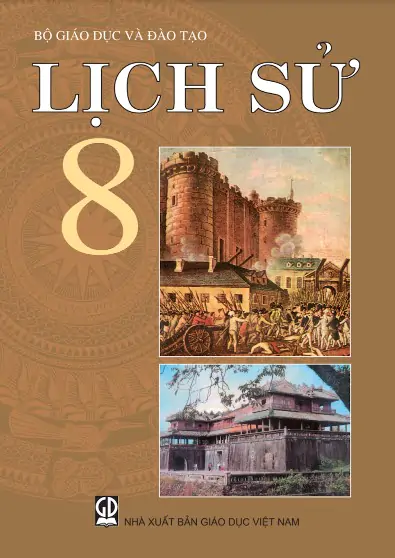
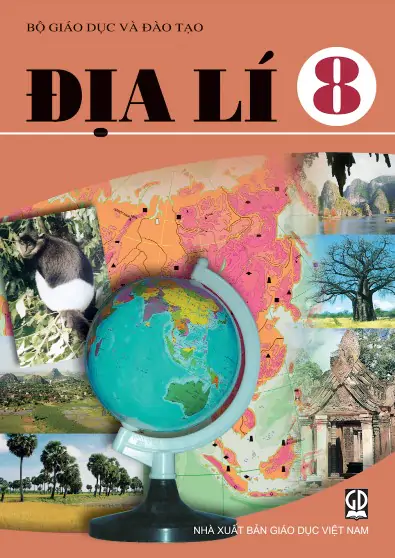
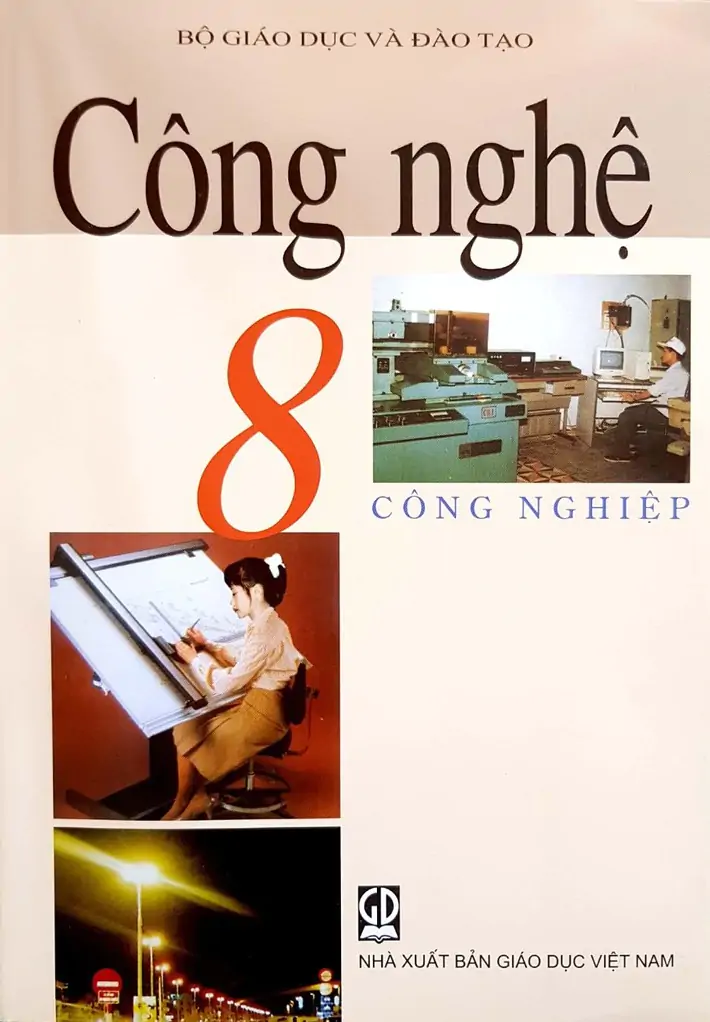


















Bình Luận
Để Lại Bình Luận Của Bạn